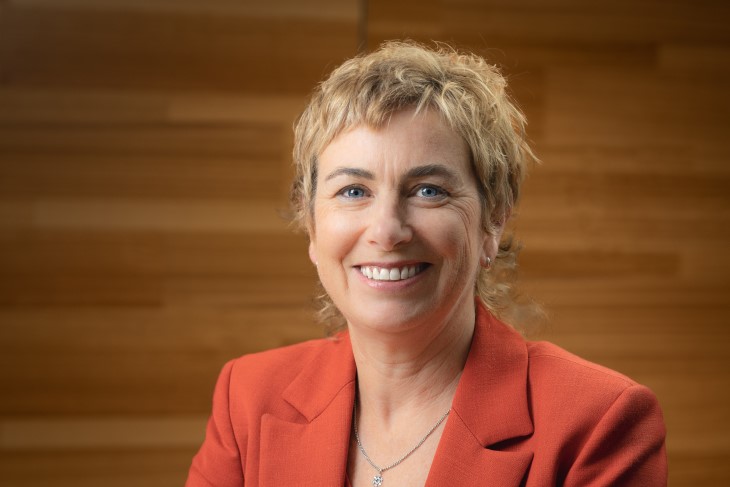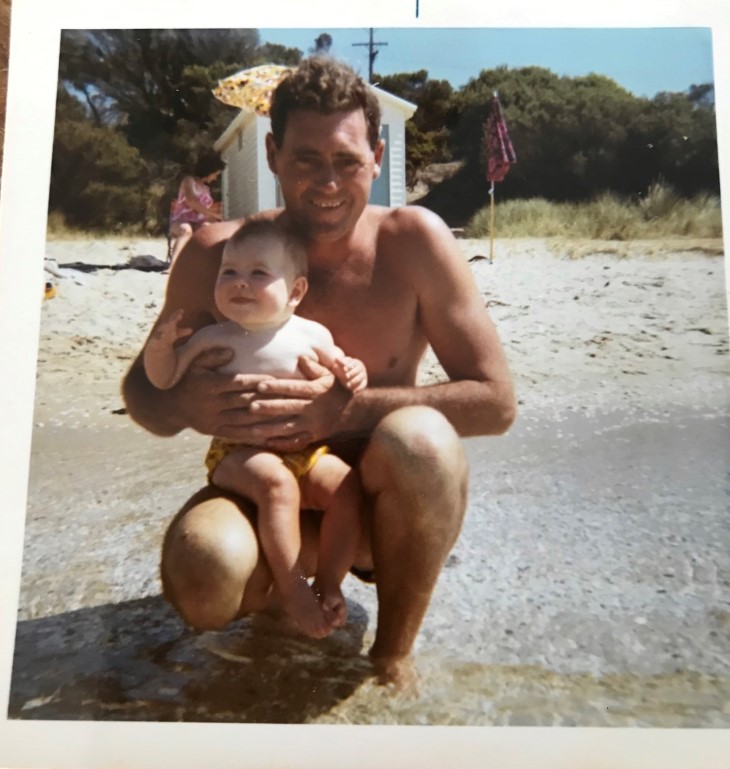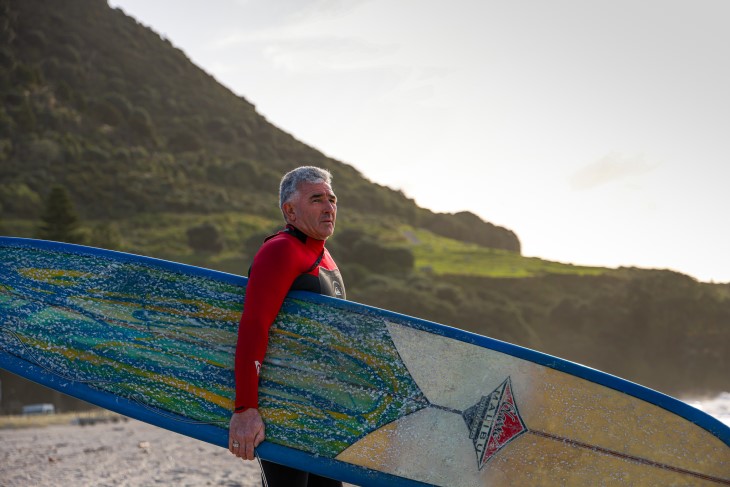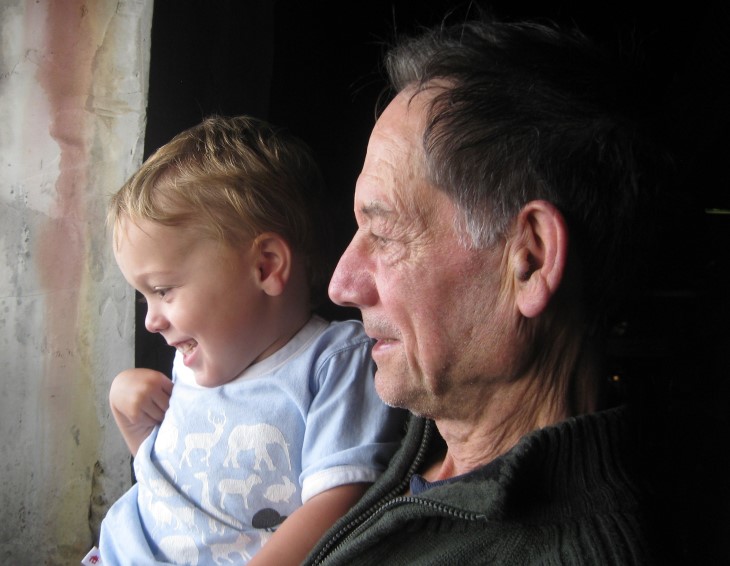Megan Main: Dad’s injury left a lasting impression

Early in her life, our chief executive Megan Main gained first-hand experience of the impact injuries can have on whānau when her father suffered a fall at work.
Cartoons with dad.
It doesn’t sound like a very risky activity – and thankfully it wasn’t.
But the fact he was at home for weeks watching morning TV with four-year-old me, instead of being out on the building site, provided an early lesson on the far-reaching consequences injuries can have.
My father was a builder and, one day at work, he was up on an old timber extension ladder when it gave way and landed on top of him.
Fortunately, he escaped without any serious injury. He ended up with a crushed toe, but it did put him off work for about a month.
For a man who was usually out the door bright and early for work, it was quite the novelty having him around for my morning ritual.
As much as we enjoyed the extra time together, it soon became apparent this was not where he needed to be.
Dad was the sole breadwinner, so we had no income while he was off work. And with mum in charge of the budget, she was just as worried about making ends meet as he was, if not more.
Looking back, it was quite a stressful time for our whanāu – as it would be for many households.

A young Megan Main with her dad at the beach.
'ACC would've made a big difference'
I grew up in Australia where there is no such thing as ACC. On top of that, dad needed crutches during his recovery and became frustrated with his lack of mobility. Not being able to work was clearly getting to him.
Situations like dad's are why ACC offers support and resources for employees and employers to encourage recovery at work as part of their rehabilitation.
Remaining connected to the workplace is good for an injured person’s physical and mental health and helps them get better, sooner. Most people with straightforward injuries can recover safely at work if some temporary adjustments are made, such as by adjusting duties, work environment, workload or hours.
ACC can help in multiple ways, including work-focused rehabilitation, support for the employer and personalised care plans. The employer can also pay for any hours worked, so on top of weekly compensation, our injured clients can earn up to 100 per cent of their pre-injury income.
That would have been important to dad because we weren’t a wealthy family. We counted ourselves lucky that he wasn’t off work for longer. Yet the strain of having no financial support during that time really hammered home the impact injuries can have – not only on the individual, but also the people they care for and support.
This week, a new online hub for recovery at work has gone live on our website, with educational material and guidance on how to make recovery at work a success.
You can learn what role you can play in recovery at work, whether you're an injured worker, an employer or a health provider.
If you get hurt, who gets harmed?
If we get injured, it doesn’t just affect us – there are flow-on affects for whanāu, friends and workmates too.
That awareness has only grown since I joined ACC, particularly around the serious implications that can result from what seem like straightforward things – like checking if a ladder is secure and stable before climbing too high.
We know the vast majority of injuries are preventable. That’s why it’s so important to educate people about behaviour changes that reduce the risk of injury, whether that be through our own mahi or partnering with the right organisations to reach everyone in Aotearoa.
It’s not about not doing a certain activity – it’s about assessing the risk then performing it in a safe way.
Most injuries can be prevented if we slow down and literally take the time to ‘have a hmmm’.
That way we can keep doing what we love and keep turning up for those who need us. And if an injury does happen, we’re here to support you to get back on your feet.




